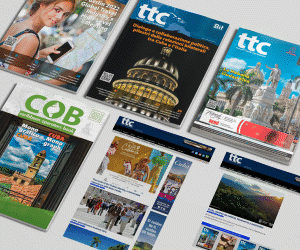By Frank Martin
TTC Service.- If something seems to be certain is that the Caribbean is taking the arrival of the coronavirus without panic, although with good sanity.
Without great daily coverage on Covid-19, the Caribbean islands have demonstrated do not see the pandemic with a false sense of security.
It is true that pandemia regional incidence rates have been low so far, but the Caribbean have taken the statistics only as temporary and do not stop medical preparing.
Examples are Jamaica, Saint Kitts and Nevis, Saint Vincent and the Grenadines islands who have agreed to request medical aid from the Cuban authorities to combat the pandemic.
Jamaican Prime Minister Andrew Holness tweeted that he would bolster his “resistance” to Covid-19 with 21 Cuban nurses.
“We are expanding the staff to meet what will come about coronavirus,” said Holness.
“We are doing everything possible to stop the spread of the virus,” he explained.
The Caribbean attitude seems to deny a theory among certain specialists, that waits for a summer free from the hated coronavirus.
Pseudo-scientists theories proliferate online with predictions that spring will be the first step for the “disappearance” of the virus.
The main factor in that suppose to be “victory” would be the heat.
Despite the fact that the World Health Organization (WHO) and the main scientific organizations that monitor the evolution of the epidemic have warned about the “false security” the theory emanates, it has continued its course.
Scientists do not deny that the new coronavirus has a seasonality like that of the flu.
But the Covid-19 is unknown. In other words, its evolution in hot months is not yet known. Currently collected data indicates that hopes for it to disappear in the summer are not sustained.
A healthy skepticism reigns on this issue.
In 2009 there was a worldwide outbreak of the so-called influenza A. Not only did start in springtime but it was sustained in summer.
A study indicates that Covid-19, has circulated mainly in temperate climate zones.
It has also done so in warmer countries such as Iran and Singapore.
Maria Van Kerkhove, technical director of the WHO Health Emergencies Program, publicly stated last week that “we have only known this virus for about eight weeks, we do not know much about it.” And he called not to lower his guard but to perfect the measures to combat it.
International entities committed to the Caribbean region such as the Caribbean Public Health Agency (CARPHA), based in Trinidad and Tobago, raised the risk of coronavirus transmission in the region, from moderately high to “very high”.
The warning was a CARPHA calll to its members to increase their surveillance mechanisms.
The organization recommended that “the best way to prevent disease is to avoid exposure to the virus. Simple daily preventive actions can help prevent the spread of respiratory viruses,” said CARPHA that has urged people to pay attention to the standard infection prevention and control precautions.
Many Caribbean states have followed a defensive path, albeit a quiet one, against the coronavirus.
Antigua and Barbuda have also enacted “precautionary measures,” including hotel education campaigns focused on “identifiable prevention, preparedness, and identification.”
It also established a “national multisectoral” COVID-19 working group to evaluate “all international and regional developments related to COVID-19”.
The Cayman Islands announced the temporary closure of Owen Roberts International Airport and Charles Kirkconnell International Airport.
“As a government, we recognize that this difficult decision will be a disruption to our entire economy,” said Moses Kirkconnell, Cayman Islands deputy prime minister and tourism minister.
“However, the lives of our people in the Cayman Islands are our main concern,” he said.
“We are confident that the long-term benefits of this border control measure will help us prevent a broader impact across our country,” he stressed.

MORE NEWS











